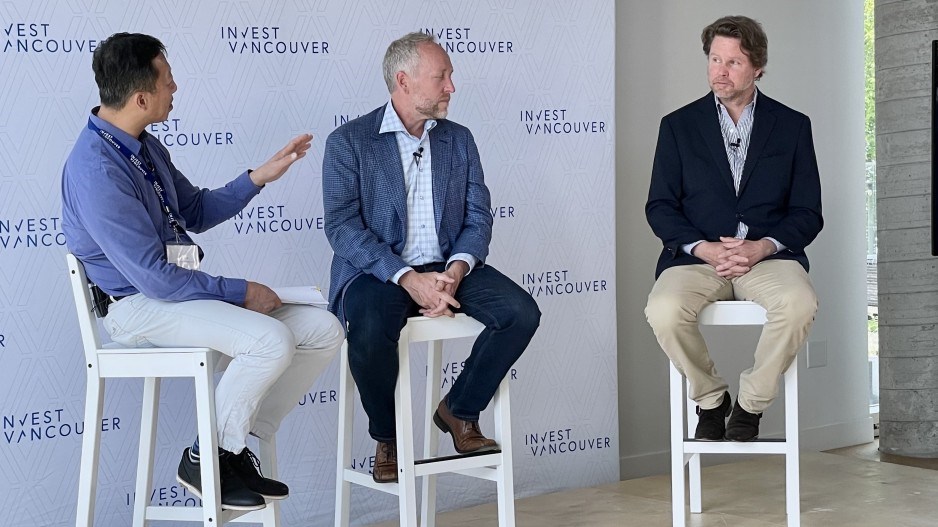There’s a stereotype in the business world that Canadians are just a tad more reserved than their American counterparts when closing deals or doggedly pursuing customers.
“I don't fully buy into that, that the Americans are that much more aggressive. I was pretty aggressive,” Tom Urban, founder of Vancouver-based Agribusiness Advisors, said Friday to an audience gathered at a SemiosBio Technologies Inc. office in the city’s Mount Pleasant neighbourhood.
Agribusiness Advisors was among the early investors in Semios, and has also invested in other B.C. agtech firms such as Terramera Inc. and CubicFarm Systems Corp (TSX:CUB).
“What [Americans] have access to are bigger acres,” Urban said, referring to Semios getting its start in the Okanagan rather than in a market that dwarfs Canada’s.
He also noted the advantage many agtech competitors south of the border have when looking for deep-pocketed investors.
“You can raise capital here, but it's not the most progressive in terms of valuations,” Urban said.
Semios, though, is among the bevy of billion-dollar unicorns to have burst from the B.C. tech ecosystem since the pandemic.
The agtech company, which specializes in using sensors and data to ensure healthy crops for farmers by monitoring for pests and harmful weather, has raised $200 million from investors over the past two years to reach its $1-billion valuation.
“The journey thickens your skin, for sure. You have to learn to take a lot of ‘no’s,’” Semios founder and CEO Michael Gilbert said during Friday’s Invest Vancouver event, which brought together agtech experts to speak about the industry’s potential on the West Coast.
He recalled scoring his first $50,000 cheque from an angel investor in a deal that closed at a Tim Hortons outlet in White Rock, B.C., before going onto eventually raise another $25 million from a mix of angels and family offices.
Since then, about three million Semios sensors have now been deployed globally, reporting every 10 minutes to help manage farming operations. For example, its devices can detect and identify agricultural pests and trigger the release of pheromones to thwart their mating.
But those sensors are not primarily monitoring farms in Canada, but in the U.S.
“We target large enterprise markets,” Gilbert said, adding rising input costs such as fertilizer are only increasing the demand for data-driven farming and the big farms that are investing in it.
Semios has taken other measures to push into bigger markets, going on an acquisition spree last year that scooped up three competitors based in California, Washington state and Australia.
Meanwhile, Gilbert and Urban agreed Canadian agtech startups can’t be timid about approaching large customers, which Urban said aren’t always as sophisticated as some might think.
“People say, ‘I don't want to tell them about [the startup’s] secret sauce, because they're going to use it, they're going to make my product or somebody else is going to tell a competitor,’” Urban said. “And at that point I just say, ‘Well, then just stay in your basement if you're not going to talk about what you do.’”




